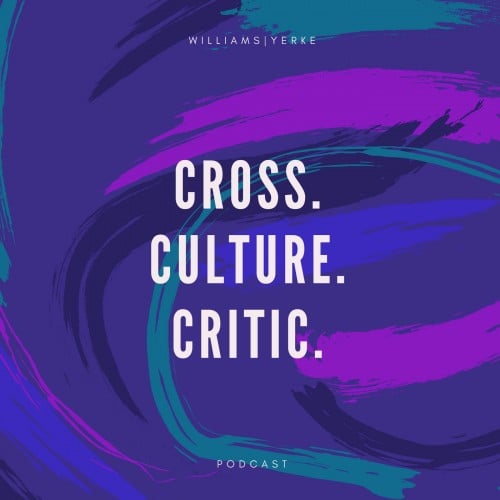
A recent article by Leah Libresco at FiveThirtyEight revealed that the number of positive words and concepts in Christian pop music far outweigh the number of negative ones.
Reviewing the list of the top 50 Christian pop songs on Billboard’s charts over the last five years, Libresco found that there were more than twice as many mentions of grace as sin. The disparity grew with other pairings, including “more than eight mentions of ‘life’ for every instance of ‘death,’ and ‘love’ was seven times as common as ‘fear.'” Libresco compared the modern Christian music landscape to shape-note hymns, the popular form of music in the 1800s. While those hymns, she notes, also contained more positive words than negative ones, the numbers weren’t as skewed.
It’s been several years since I’ve consistently listened to new Christian music, but I don’t doubt that research. Part of the reason I stopped listening was because it had turned into fluffy, inane babble. Most modern worship songs — which have largely replaced hymns in many churches — have less to do with God’s character and more to do with feeling happy, raising hands and making a joyful noise. Add in a few vague phrases about nature and some 7/11 lyrics (the same seven words, repeated 11 times), and you have a hit.
Now, I don’t know that the research tells the whole story. There’s always been a tendency toward positivity in Christian music — “Every day with Jesus is sweeter than the day before” isn’t necessarily an accurate depiction of life. If you know where to look, there is honest, theologically sound Christian music out there. I’m a big fan of Keith and Kristyn Getty’s hymns, as well as the work of collectives like Indelible Grace and Page CXVI. And for a faith that is ultimately about salvation and victory, we should expect there to be a joyful presence in our art and a time for celebration with fellow believers. Earlier this year, my wife and I attended a Rend Collective concert, and it was simultaneously a moving spiritual experience and great fun.

But Libresco’s research shows the trend exists within popular Christian music, the songs that Christians listen to and download over and again. The average Christian music fan is more likely to have Jamie Grace on their iPod than Indelible Grace. This is what the Christian market says it wants more of and, as a result, — because Christian, when applied to art, is nothing more than a marketing term — it’s what the Christian music industry will keep churning out.
This isn’t new. There’s a reason why many Christian bands have moved on to independent or mainstream labels; Christian labels didn’t give them the freedom to write about doubt, fear or controversial issues. It’s the reason why Christian directors wouldn’t be caught dead making a “faith-based movie” or many Christian authors don’t like to think of their work as Christian fiction: the Christian label implies not just a lack of quality, but a restricted focus.
So why can’t we just encourage people to listen to these other artists? It’s not always so simple. Some believers will only trust art with the “Christian” stamp of approval that tells them that it’s “safe.” There’s also the reality that no matter how deeply felt some artists’ beliefs are, “Christian” (or faith-based) art is the dominant representative of Christianity to the world. Terrence Malick might be a man of faith, but the average moviegoer doesn’t think of “The Tree of Life” as a Christian movie; they think of “God’s Not Dead.” And trust me, being associated with “God’s Not Dead” is not a good thing.If we want people to know what Christianity is really like, we have to make sure our art isn’t giving a false impression.
Why does any of this matter? Because art is how we process the world. Sermons speak to us intellectually, but music speaks to us emotionally; flannelgraph might give us information, but a movie captures our imagination (note: I’m painting with a broad brush here; sermons can be emotionally affecting, and I’m sure flannelgraph can be inspiring). We turn to art to help us sort out our emotions and confusion. But what happens when Christians turn to art that claims to be for them, yet find that it no longer reflects the world they’re living in? Libresco offers up the following illustration:
[Richard Beck, a psychology professor at Abilene Christian University and the author of several books on the intersection between theology and psychology] … identifies one group of Christians who are particularly poorly served by uniformly upbeat themes in worship: “Winter Christians,” a group that Beck describes as having a relationship with God that is more touched by pain, distance or doubt. They can’t recognize themselves in the “Walt Disney-fication” of contemporary Christian music, Beck said, and when their experiences with Christianity aren’t reflected in hymns, they tend to assume that there’s something “wrong or diseased about who they are.” But Winter Christians aren’t alien to Christianity, Beck said: The Bible’s psalms of complaint reflect their struggles.
Christian culture too often presents a childproofed, soft-edged world in which a lesson is learned from every hardship, every doubt can be answered with a Bible verse, and every obstacle is easily overcome. It promises prosperity, smiles and an escape from difficulty, and isolates us from the dangers and hardships of the world. As someone who grew up entrenched in Christian culture (and moonlit for several years at Family Christian Stores), I can testify that many people consuming these items know this. They buy books that promise easy formulas for defeating temptation and prayers that promise victory. They buy music that encourages and lifts them up. They buy brightly colored shirts, key chains with Bible verses and assorted Jesus Junk because it gives them warm fuzzies. They buy Testamints because…well, I never figured this one out.
Encouragement and warm fuzzies are fine. And there are many great books written by theologians, pastors and Christian authors. There is nothing wrong with buying these things. The problem comes when we look at a man-made, marketing-driven, profit-based subculture and see it as a true representation of the Christian life.
Christian subculture presents an incomplete view of the world. The Christian life is not one of constant victory and strong faith. It’s one where we’ve been promised trouble in this world. It’s one in which we still suffer sickness and death, and where our prayers often feel like they’ve gone unanswered. It’s one in which divorces happen to faithful spouses, G0d-fearing parents still struggle to feed their children, tragedy strikes without warning, and where we often vacillate between deep faith and momentary atheism. There is joy and victory in the Christian life, but it kisses hardship every day. This shouldn’t be new to Christians; what the subculture ignores, we read about in Scripture. Jesus wept. Job scraped his boils. The Psalmists questioned God.

The god of Christian subculture is too small to deal with this. This god tells us to have faith and not doubt, but doesn’t invited us to wrestle with him. This god promises us joy, but doesn’t sit with us while we weep and scream. This god assures victory, but doesn’t tell us that the path to it will leave us bleeding and bruised. And when ‘Winter Christians’ encounter these dark nights of the soul and look around at their fellow believers and see a world that doesn’t reflect their reality, they can feel isolated, adrift and unwelcome.
The solution is not to quit buying Christian music or make everything dour; you’ll just end up on the different side of the same boat there. The solution is to be honest in our worship and our art, and let it be a true expression of the Christian life, with all its joy and hardship. More than that, we need to make sure it remains in its proper context. Christian culture should be an expression for the Christian life, not a substitute for it.
The context for living the Christian life, coping and finding our way through it is not done through music, novels or movies, although they are helpful tools. We need to cling to Scripture, rest on the Holy Spirit and live in community with believers who are open and honest about the highs and lows of the Christian walk; bursting with joy at some moments, yet raw and vulnerable during the tough times. I’m thankful to attend a small church where almost everyone knows everyone, and this past year I’ve been very blessed to be part of a men’s group where we were open about our struggles. I’m thankful that they sing the modern worship mixed in with the great hymns of the faith, as a reminder of a foundation built on suffering and a hopeful look at a joyful future. That’s the Christian life. Not always a happy song, but one worth singing.










